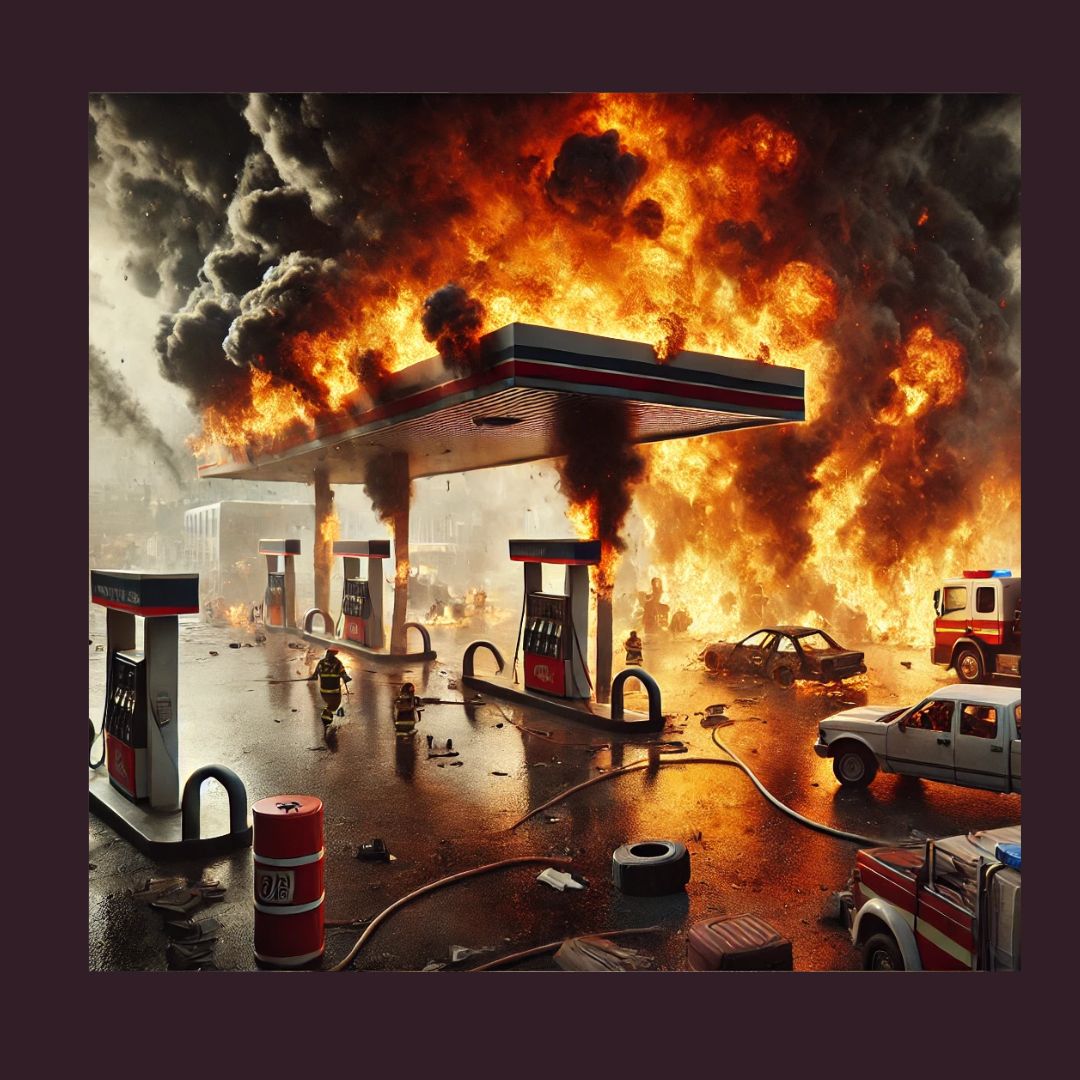Experts point to a likely “process failure” as why the Fonex Station burnt on Saturday in Akwa Ibom State. Find out more…
A devastating fire broke out early on Saturday at Fonex Petrol Station in Itam, Akwa Ibom State. The blaze consumed a truckload of Premium Motor Spirit (PMS) and burnt the entire station. Safety experts have pointed to a likely “process failure” as the cause of the fire.
The fire reportedly started while fuel was being evacuated from a tanker at the station. Witnesses said that the fire spread rapidly, overwhelming the initial firefighting efforts by station staff. Emergency responders from the state fire service, assisted by police personnel, arrived but could not control the blaze due to its intensity.
“The fire was so intense that it overwhelmed the firefighters initially,” said one motorist at the scene. A firefighter told Medialord.ng at the scene of the incident that they were overwhelmed by the huge flame. Fortunately, no casualties were reported, though the incident caused considerable panic among those nearby.
Some safety experts told Medialord.ng that they suspect procedural oversights as cause of the incident. Mr. Ita Benson, the Coordinator of the Institute of Safety Professionals of Nigeria (ISPON) in Akwa Ibom, said there was need to take safety serious in all establishments.
He suggested that a failure in the station’s operational processes may have been to blame. “It seems the staff were dispensing fuel while simultaneously selling it, which likely led to the fire,” Benson said.
Benson also emphasized that the staff at the station appeared to be inexperienced in using the safety equipment available to combat fires. This lack of preparedness, he believes, contributed to the escalation of the blaze. “By the time the professional firefighters arrived, the flames were already too large to contain easily,” he explained.
Concerns over safety after Fonex Station burnt
The Fonex station fire is just one of several similar incidents in recent months, raising alarms about fuel station safety. In September, another fire broke out at a filling station in Lagos, caused by improper handling of fuel. That fire also resulted in significant property damage but fortunately no fatalities.
Earlier this year, a petrol station fire in Kano claimed the lives of two workers. Investigations revealed that a combination of poor safety practices and equipment failure contributed to that blaze. The increasing frequency of such incidents has sparked widespread concern among safety experts and government authorities.
Safety experts have urged fuel station owners and staff to adhere to strict safety protocols to prevent similar incidents. Mr. Benson called for more comprehensive training of station personnel on fire prevention and emergency response. He stressed that every filling station ought to have a professional safety officer on its staff. Moreover, such officers are supposed to undergo fresher courses every four months, he said. Additionally, staff must be familiar with the proper use of fire extinguishers and other firefighting equipment.
“Filling stations must not just rely on external firefighters,” Benson added. “Staff at these stations must be equipped with the skills and knowledge to handle such emergencies. Regular drills and safety checks are essential.”
Police and Fire Services respond
The Akwa Ibom State Police Command quickly responded to the fire outbreak at Fonex Station. Autorities reportedly deployed officers to ensure safety and control the crowds that had gathered to watch the fire. The Police Public Relations Officer (PPRO), DSP Timfon John, confirmed that there was no casualty during the fire.
“The fire started early in the morning, and we were contacted immediately,” said PPRO John. “Our officers assisted in maintaining order while the firefighters battled the blaze. Investigations are ongoing to determine the cause of the incident.”
In light of the incident, firefighters and other safety experts have emphasized the need for more stringent safety measures at petrol stations. These include regular inspections of safety equipment, strict adherence to fuel dispensing protocols, and the provision of proper firefighting training for station staff.
Benson also suggested that fuel stations should consider installing more advanced fire suppression systems. “Automatic fire suppression systems can help reduce the risk of fire spread, especially in high-risk areas like fuel dispensers,” he recommended.
Observers say after the Fonex station burnt, attention may now focus on the critical need for better safety practices and operational oversight. “The incident shows how small mistakes can lead to devastating fires,” Amos Ekpenyong, a motorist observed. Experts urge station owners and workers to take fire safety seriously to avoid similar tragedies in the future.

Leave feedback about this